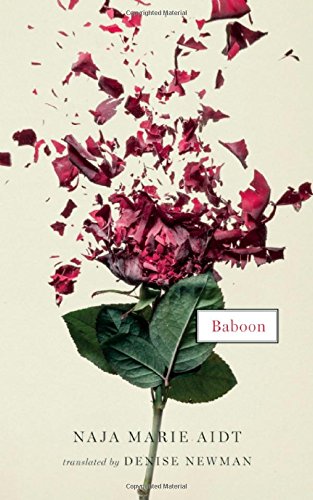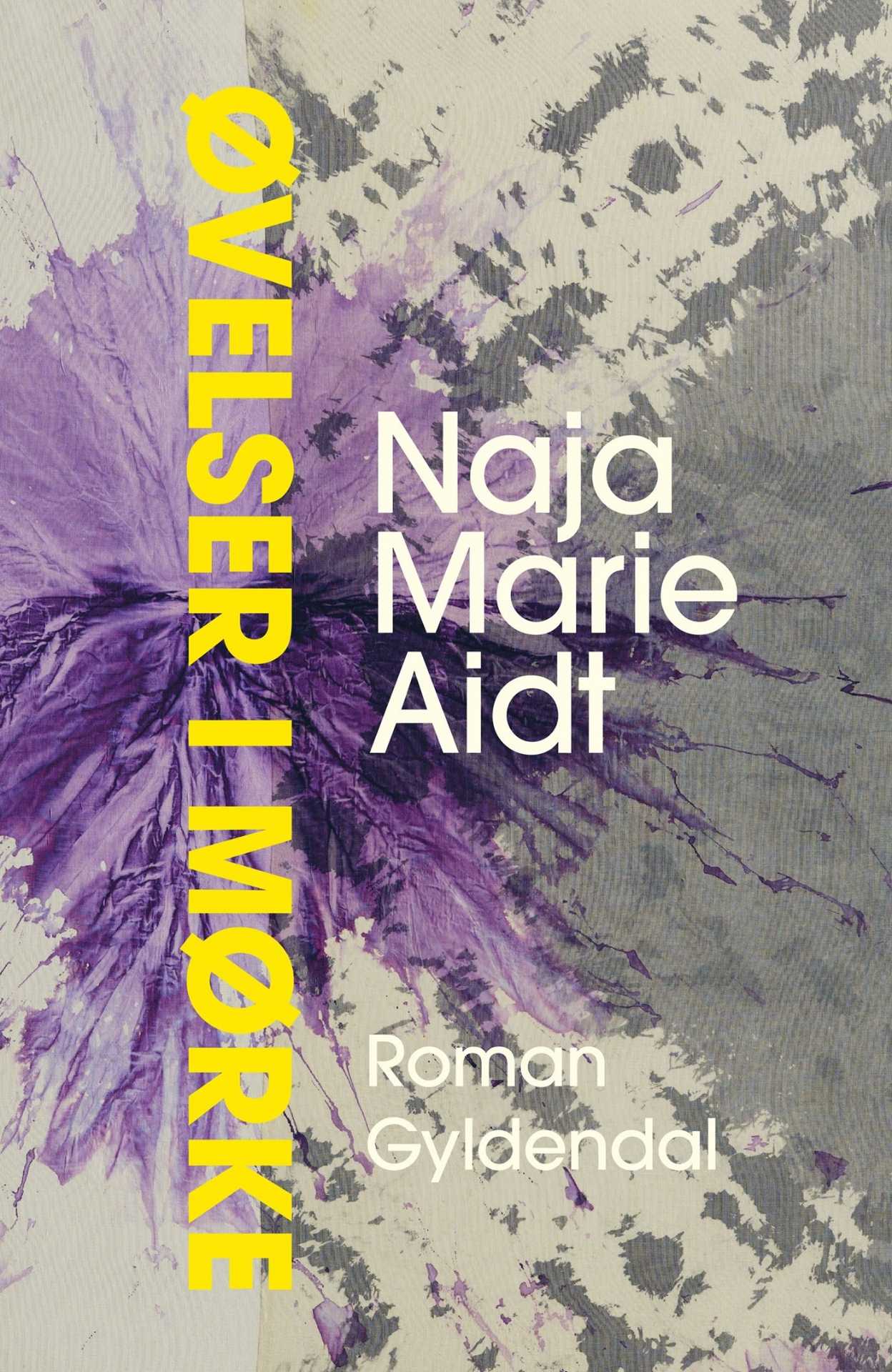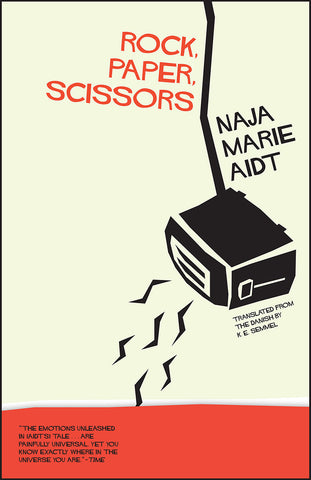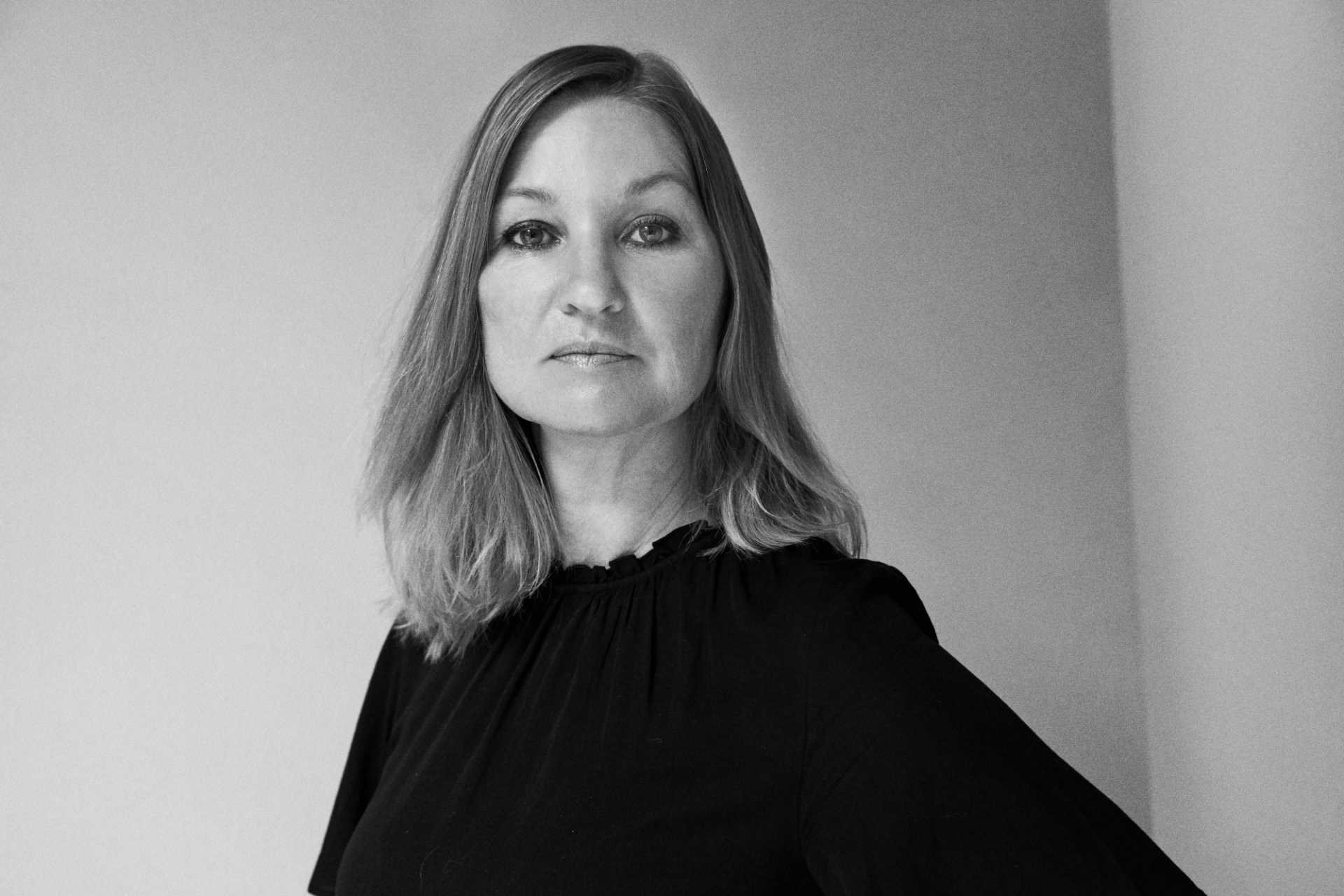When Death Takes Something From You Give It Back: Carl's Book
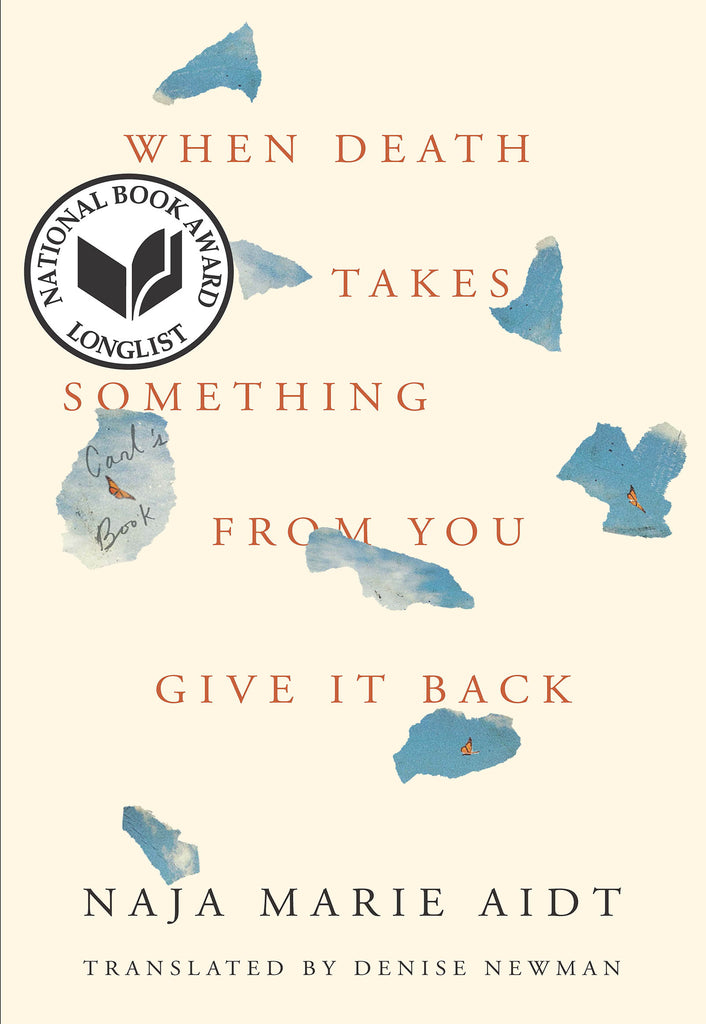
Translated into English by Denise Newman
Finalist for the 2019 Kirkus Prize in Nonfiction
Longlisted for the 2019 National Book Award in Translated Literature
Longlisted for the 2020 PEN Translation Award
“I raise my glass to my eldest son. His pregnant wife and daughter are sleeping above us. Outside, the March evening is cold and clear. “To life!” I say as the glasses clink with a delicate and pleasing sound. My mother says something to the dog. Then the phone rings. We don’t answer it. Who could be calling so late on a Saturday evening?”
In March 2015 Naja Marie Aidt’s son Carl died at 25 years old in a tragic accident.
When Death Takes Something from You Give It Back: Carl's Book (Har døden taget noget fra dig så giv det tilbage - Carls bog) describes the first year after that devastating phone call, until the shock slowly wears off. It is at once a sober account of life after losing a child—showing how grief transforms your relationship to reality, your loved ones, and time—and a book about the language of poetry, loss and love.
How do you approach the impossible to write about your deceased child? The book’s complex form enacts the rupture and process of assembling the pieces. There are short prose sections addressed to Carl and intense lyric passages. There are fragments from the present that merge with flashbacks and journal entries from the past and present. Quotes appear throughout from an array of literary voices, woven together with Naja Marie Aidt’s own voice. This multifarious book defies genre or any singular description.
*
“There is no one quite like Naja Marie Aidt. She’s comparable only to things like sequoias, whale song, desert thunderstorms, or wolves. The depth of her emotional world and the diaphanous, often brutal clarity with which she understands the human soul beckon us to pause, breathe, think. Here, she takes us on a journey into death and loss, and then thrusts us back out—back into life—more awake, more ready to embrace it as it comes.” —Valeria Luiselli
“Extraordinary. It is about death, but I can think of few books which have such life. It shows us what love is.” —Max Porter
“Naja Marie Aidt is, without a doubt, one of the finest living writers in Scandinavia. Always interesting. Always intelligent. Playful, precise, and passionate. A writer’s writer—one of the few I wait for and read the moment she’s got something new. And then there’s Carl’s Book: a heartbreaking masterpiece about unimaginable loss, resilience, and love. I wish with all my heart that Naja Marie Aidt never had to write this book—a memoir from the inside of grief—and at the same time I am deeply grateful that she did. It is devastating, wise, precise, and beautiful. Sometimes a work of art makes you impatient: you want to share it with everyone. You call people (call them, knock on their doors, buy the book and put it in their mailboxes) and tell them to read it immediately. Carl’s Book evokes that kind of urgency.” —Linn Ullmann, author of Unquiet
“One of the best books ever written about sorrow in Danish literary history, if you ask me. It’s heartbreaking in its description of horror, trauma and loss, but it’s also beautiful, courageous, poetic, and unforgettable.” —Dorthe Nors, Five Books
"This book is an alchemical feat, giving shape to the most profound sense of absence. A stirring, inventive masterpiece of heartbreak." —Kirkus, starred review
"A stunning evocation of life. . . . Aidt’s memoir is like broken glass, the shattered pieces singular in their form but each glistening, ready to cut." —Los Angeles Review of Books
"This remarkable memoir is easily one of the best of any kind published in the last decade…Watching Aidt pull it off is akin to watching Philippe Petit walk a tight-rope between the Twin Towers." —Literary Hub, "The Ten Best Memoirs of the Decade"
"This book does more than just plumb the depths of our emotions, it also serves as an affirmation: of family, of love, and of life."—Nylon
“Aidt’s collage. . . . is artful and is only seemingly frantic. Beneath the surface lies a highly controlled text that aims to bring her son to life on the page, and thus allow herself to move on with her own life.” —Bookforum
“To read this book is to commune with Aidt and with suffering itself, a testament to Denise Newman’s dedicated and emotive work in translating it from the original Danish.” —World Literature Today
“This beautiful, exquisitely made memoir is Didion 4.0. . . . a meditation on time and the way our narration of what happens during life sieves through a slippery gear—our selves—how consciousness is the sound of trying to get it turning again.” —Literary Hub
“An undoubtedly beautiful artistic achievement. . . . a triumph of honesty in self-expression, complete and unmitigated.” —Ploughshares
“A powerful and emotionally intense account of dealing with trauma, the struggle to find the right words to express the anguish of grief and finding the strength to move on after a tragic loss of a loved one.” —TranslatedLit
“A wild, sad howl for an unimaginable loss. A howl that comes from deep inside the heart of grief.” —EuropeNow
“A beautifully fragmented and hope-filled book about embracing love and death.” —BookRiot
“Devastating, angry, challenging, fragmented and filled with the beautiful hope that the love we have for people continues into the world even after they’re gone.” —Culture Fly
“Naja Marie Aidt’s When Death Takes Something from You Give It Back is a lamentation, it’s a dirge, it’s a celebration. It's the story of the death of the author's son Carl at age 25. It's the story of his life and it's the story of the aftermath, and reading it, I’ve never read anything close to how beautiful and terrifying this book is about grief and about befores and afters.” —John Freeman
“When Death Takes Something from You Give it Back is a letter from a journey through a lake of fire. Aidt manages the emotionally impossible, sharing with the reader something of what it is to lose a child. A radiant book.” —Rivka Galchen
“This book absolutely haunted me. I was entirely unable to put it down. Carl's book, his story, his life, will stay with me for a long time. Aidt's writing on grief, boundless sorrow, sadness, and pain reminded me that death comes to us all and that there is no universal path to overcoming loss. No amount of courage nor strength that can lead us back to being whole. Just one foot in front of the other. Every day.” —Matt Keliher, Subtext Books
“Just as the mind reconstructs the traumatic events in memories, the narrative constructs meaning through repetition, borrowed fragments, flashbacks…These memories, like dried flowers, collected and assembled, carry Carl’s spirit, preserved for eternity." —Words Without Borders
“Naja Marie Aidt’s shattering elegy about her grown son’s death is a modern Greek tragedy—and a relentless account of grief’s deepest reality.” —Weekendavisen
“Naja Marie Aidt’s book on the loss of her son is a genuine and unbearable masterwork. . . . [Her writing] about death, grief and the indescribable consequences make up this incredibly good book. I wish Aidt never had to write about this endless nightmare, indeed, one of its most important points is that grief never goes away. And yet, we now have a book without illusions, a merciless and insistent depiction of how deeply death reaches into the body and soul. Aidt has rendered a convincing reconstruction of the depths of grief.” —Jyllands-Posten
“An immense work of art . . . an extremely beautiful and shockingly sorrowful work and a declaration of love’s communality. One of the most painful and paradoxically one of the most beautiful books I have ever read.” —Kristeligt Dagblad
“Naja Marie Aidt has written incredibly and incredibly well about losing her child.” —Politiken
“A necessary book, which leaves the reader deeply moved. The first thing one wants to say after reading Naja Marie Aidt’s book is ‘thank you.’ Thank you for giving terror a language . . . You have here a book that was written out of necessity, and you are sucked into that necessity as you read. Deeply moving.” —Information
“Raw, beautiful reading and enormous literature. . . . a rewarding work on death, language, love and the companionship that makes it possible to survive such deep sorrow.” —Børsen
“Painful poetry and important prose, which everyone should read. . . . Read Carl’s Book right away. It’s important, unique and completely indispensable.” —Nordjyske Stiftstidende
